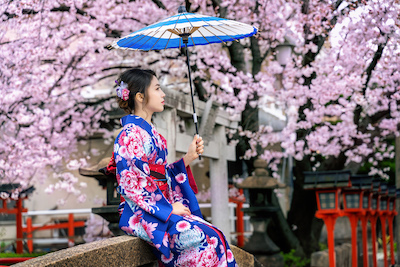When it comes to dating in Japan, it is difficult to compare Japan to any other country. It is any easy generalization to say that Japan is an East Asian nation, so they must be similar to China, South Korea and Taiwan right? Even though this is convenient, it couldn’t be farther from the truth. This is why, when it comes to dating, this is one of our favorite articles. To understand dating culture and customs in Japan you have to grasp many details about Japan’s history. Without knowledge of these topics, it is hard to contextualize dating behavior.
In many ways, Japan is like no other place on Earth. For thousands of years, Japan had limited contact with other peoples. This was predominately due to the fact that it is an island nation and physical interactions and connections with others was complicated. As Japan had most of the resources it needed, trade was limited. Linguistically and culturally Japan developed in a relative vacuum, so to speak. This is the start of Japanese uniqueness.
In Japan, it is common for people to go on group dates, also known as “gokon,” where groups of friends (usually of the same gender) will go out together and socialize. This allows for a more relaxed and comfortable atmosphere where people can get to know each other without the pressure of a one-on-one date. Usually these groups will take place at an izakaya, or Japanese restaurant; however, some same sex friend groups will choose Aisekiyas. An Aisekiya is basically a place where 2-3 friends, such as 2-3 men or 2-3 women will go to meet other groups of the same. In these bar-restaurants, men will pay by the hour and women will eat and drink for free. It’s effectively speed dating for Japanese friend groups.
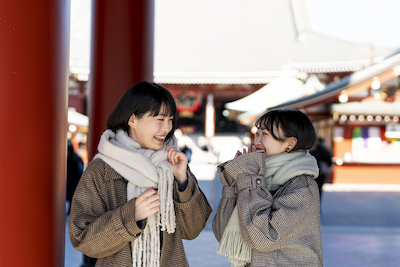
Though increasingly less common, some traditional practices of Japan are still relied upon by singles. “Omiai” is a traditional Japanese practice of arranged marriages. It involves a matchmaker introducing two people who they believe would make a good couple based on factors like education, family background, and personality. In large cities, it is unlikely to be practiced but in rural areas where social circles are more controlled, some singles may still use omiai to find a spouse. (Note: Omiai (お見合い), is also a popular matchmaking app in Japan.)
Further, it is important to understand that most Japanese singles live with an immense amount of social pressure. Pressure to conform, perform and excel in their craft. This pressure permeates into dating culture as there is often a suppression of desires. Sexual desires, familial desires, or other aspects of self expression are often shunned, at least in the mainstream, therefore singles in Japan may feel guilty about them. This notion touches on a range of topics such as saving face on the individual side; however the suppression on a societal level leads to some acts which are considered perverted by foreigners. These are things like Maid Cafes, Companion Bars, Soapland and more. It’s not uncommon to find sexualized aspects of culture around. 7-Eleven markets for example, stock pornographic books and even Hentai on occasion.
There are many more details we could discuss about Japanese dating culture, but we’ll stop here to explain other highlights. If you are interested, we conduct research studies and can also provide more comprehensive market overviews. Contact us with details about your project.
Do Japanese people date foreigners?
There is no right or wrong answer to this. A Japanese person might date a foreigner. This answer might also change whether you are a man or a woman. Further, we won’t go into too much detail now, but for many years Japan had a policy called Sakoku, which specifically limited interactions, influence and rights of foreigners in Japan. Though it tends to be with older generations, there are some reservations that Japanese have about being with foreign people. Therefore be mindful that not everyone, or their families for that matter, will be open to intercultural relationships.
If you are a man seeking Japanese women, then you may need to be ready to invest a lot of time. Japanese women are often looking for life partners or relationships. Casual relationships and sex can and do happen, but it is unlikely to happen on the first date. You might need to take time to get to know someone which may be difficult on a short vacation in Japan.

If you are a woman seeking a Japanese man, then you might need to be more forward about your interest. Many Japanese men, particularly younger men, will be shy and respectful. In many cases, they will not exert the confidence to approach you without a direct invitation. Of course this doesn’t apply to everyone, but it is important to keep in mind.
For same sex relationships, we believe it is important to keep in mind the common cultural norms that all Japanese adhere to. When it comes to dating though, we believe you’ll be able to find people based off commonly shared interests or in events. These are some of the best ways to meet Japanese singles in low pressure environments.
Lastly, it is important to remember in Japan, people speak Japanese. Although this is obvious to some, many foreigners don’t understand why Japanese tend to speak very little English or any other language. If you know the language or have a way to communicate then you will have an easier time conversing with Japanese.
Gaijin Hunters: are they real?
Referred to as western hunters or gaijin hunters, this is the concept of a Japanese man or woman who essentially seek foreigners for sex, dating or some other kind of relationship. Do they exist? Are they common? Based off of our knowledge of the market and beliefs about typical human behavior, we’d say of course they do. Though some people like to date within their culture, others are attracted to opposites. This is not unique to Japanese culture either. There are definitely people who will seek out what’s different to them.
That being said, we’d like to add a little more context on this context. Keep in mind that there could be other reasons that a gaijin hunter might be after you. There could be a genuine attraction OR it could be to take advantage of you. Japan is generally a safe country, especially when it comes to street culture. However, when it comes to underground bars or sexualized situations the interest may be on money. Use your best judgement and be careful.
Hentai: how it plays a role, or role plays…

Though foreigners may believe that hentai is popular in Japan, it isn’t considered mainstream or accepted part of Japanese dating culture. While it may be popular among some individuals, it is not considered a normal or healthy aspect of dating culture.
What is hentai?
Hentai is a genre of anime, manga, and other forms of media that often depicts sexualized and unrealistic scenarios. Hentai is effectively a form of pornography but in a cartoon format. There may be some individuals with a fetish about something in hentai, but in general, it is not accurate to say that hentai has a significant role in Japanese dating culture. It is viewed as a niche interest that is not representative of the broader social norms and expectations surrounding dating and relationships in Japan.
8 Interesting facts about dating in Japan
- In Japan, it is common for couples to celebrate “kokuhaku” (confession) day on November 11th, where people confess their feelings to their crush or significant other. This day has become a popular day for matchmaking events and promotions.
- Japan has a unique dating culture where many couples participate in “goukon” (group dates), which involve a group of friends meeting up with another group of friends for drinks and socializing. This allows people to get to know each other in a relaxed setting with friends as a buffer.
- PDA (public displays of affection) are not as common in Japan as in Western countries, and it is generally considered more polite to keep physical affection private. In fact, many Japanese often feel embarrassed even by kissing in public.
- In Japan, it is common for couples to wear matching outfits or accessories, known as “couple coordination” or “koppu-kon.”
- Many Japanese dating apps and websites require users to provide their blood type on their profile as it is believed to be an indicator of personality traits.
- In Japan, Valentine’s Day is celebrated differently than in Western countries. Women give gifts to men on Valentine’s Day, while men return the favor on “White Day” on March 14th.
- It is common for Japanese couples to exchange “hanko” (personal stamps) as a sign of their commitment to each other. These stamps are used instead of signatures on important documents in Japan.
- In Japan, there is a practice called “tsukiai,” where couples meet each other’s families early on in the relationship as a sign of respect and commitment. This allows families to get to know each other and potentially offer advice or approval for the relationship.
Most Romantic Day in Japan
In Japan, there isn’t just one romantic holiday. Valentine’s Day is celebrated differently than in many other countries. On February 14th, it is traditional for women to give chocolates to men, with different types of chocolates having different meanings (e.g. “giri choco” for obligation and “honmei choco” for romantic interest). Men reciprocate on March 14th, known as “White Day,” by giving gifts to women.
Typical First Date in Japan
A typical first date in Japan can vary depending on the individuals involved, but there are some common expectations and practices. In Japan, it’s common for couples to be introduced by friends or to meet through online dating apps. The first date often takes place in a public space, such as a café or restaurant, and can be quite formal.
On a first date in Japan, it’s important to make a good impression by dressing well and being polite. The man is typically expected to pay for the date, although this practice is changing among younger generations. Conversation during the date is generally polite and reserved, with topics such as hobbies, interests, and work being discussed. It’s considered impolite to ask personal questions too early on in the relationship.
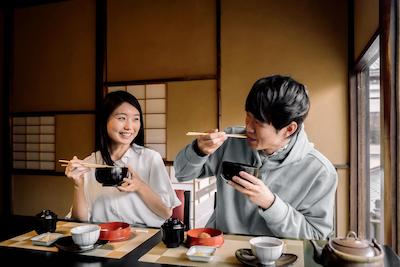
Physical touch on a first date is usually limited to a simple handshake or bow. PDA (public displays of affection) are generally not common in Japan, even among established couples. The date may end with a polite exchange of thank yous and the possibility of arranging a second date.
It’s worth noting that while some elements of a first date in Japan may seem formal or reserved to outsiders, the focus on respect and consideration for one another is an important part of Japanese dating culture.
Is Japan gay friendly?
Japan is generally accepting of LGBTQ+ individuals, and in recent years, there has been increased visibility and acceptance of the community. However, same-sex marriage is not yet recognized in Japan, and discrimination and prejudice against LGBTQ+ individuals still exist in some areas of society. While there are no legal protections for discrimination based on sexual orientation or gender identity, some companies and local governments have implemented policies to protect the rights of LGBTQ+ individuals. Same-sex couples can also register as partners in some municipalities, although this does not provide the same legal rights as marriage. Overall, while progress has been made towards greater acceptance and equality for the LGBTQ+ community in Japan, there is still work to be done.
Social cues and gender roles in Japan
In Japan, there are certain social cues and gender roles that can affect dating culture.
One important social cue is the concept of “tatemae” and “honne,” which refer to a person’s public face and private face, respectively. In dating, this can mean that Japanese singles may not always be direct in expressing their feelings, as they may prioritize maintaining a certain image in public.
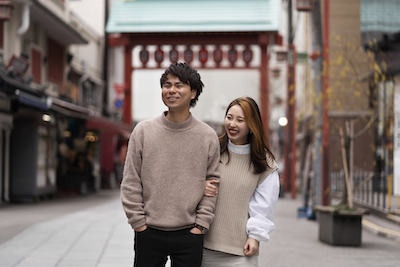
Another important aspect of Japanese dating culture is the emphasis on group activities and events, such as “gokon” or group dates. These group settings can help to alleviate some of the pressure that can come with one-on-one dating, as well as provide a more social and low-key atmosphere.
Gender roles can also play a significant role in Japanese dating culture. Historically, there have been certain expectations and stereotypes associated with men and women in relationships, such as the expectation that men will be the primary breadwinners and women will prioritize domestic duties. However, this is changing as Japan becomes more modernized and egalitarian values become more common.
Overall, Japanese dating culture places an emphasis on social harmony, group activities, and indirect communication, while gender roles continue to evolve.
Best places for meeting Japanese Singles
Whether you are living in Japan or visiting Japan your options may vary. In terms of meeting Japanese singles, you can technically do that anywhere. There is no one best place. However, we’ll share some thoughts.
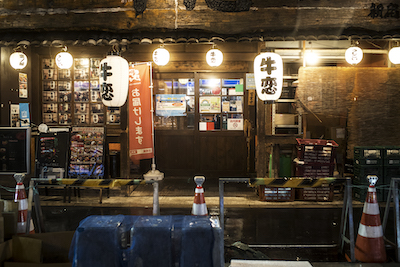
- Izakayas: These are traditional Japanese pubs, which serve alcohol and food. Many young Japanese singles like to hang out at izakayas with friends and coworkers after work. You can strike up a conversation with someone at the bar or join in on a group’s conversation.
- Cultural Events: If you happen to be in Japan during the festival season, then you might be in luck. Japan has a rich culture and many events and festivals throughout the year. Attending these events can be a great way to meet new people who share your interests. From traditional festivals like the Cherry Blossom Festival to modern events like Anime conventions, there are plenty of opportunities to meet Japanese singles. Did you know there is even a penis festival?
- Karaoke bars: As you may know, Karaoke is a popular activity in Japan. Many karaoke bars have private rooms where you can sing with a group of friends or other people. However, it’s also possible to sing in a public room sometimes. Both are fun ways to socialize and potentially meet someone new. Who knows, your best singing might land you a date?
Top dating apps in Japan
The dating app industry in Japan is quite an interesting one. ‘Dating’ in the European and North American definition, doesn’t really exist in the same way in Japan. However the concept is evolving.
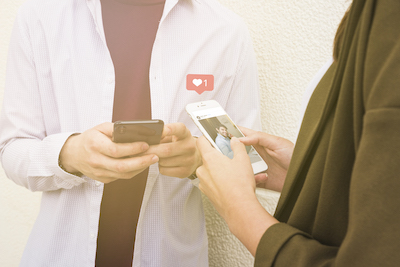
There are major foreign players in the dating app industry for Japan like Bumble, TanTan and Tinder. These apps are increasingly popular with local Japanese people. They are also an easy way to meet foreigners, or gaijin. As we’ve discussed, there are some Japanese who would be interested in this and some who wouldn’t, so it depends what you the individual is hunting or looking for.
In terms of Japanese dating apps, there are a number of local apps which are very well known amongst Japanese people. Many of these apps are not necessarily used outside of Japan.
- Pairs – This app has gained a lot of popularity in Japan and has a user-friendly interface. It is mainly for serious relationships and has many features such as compatibility matching, profile verification, and language translation.
- Omiai – this app is focused on matchmaking and is mainly used for people who are looking for a serious relationship or marriage. The app has a detailed profile system that includes preferences and interests, and it also has a unique feature where users can specify their income range.
- Tapple – is a Japanese dating app that focuses on users’ interests and hobbies to help them find compatible partners. It offers various communication methods, including messaging and voice and video calls, to enhance users’ dating experiences.
- Tokyo Calendar Date – is a Japanese dating app that focuses on matching users based on their interests and schedule. The app allows users to create detailed profiles that include their hobbies, favorite foods, and preferred date activities.
- With (ウィズ) – is a Japanese dating app that focuses on personality matching rather than just swiping through pictures. It also allows users to create groups and attend events together.
If you’d like a deeper understanding of the overall Japanese market, please contact us to schedule a consultation or request a research report.



